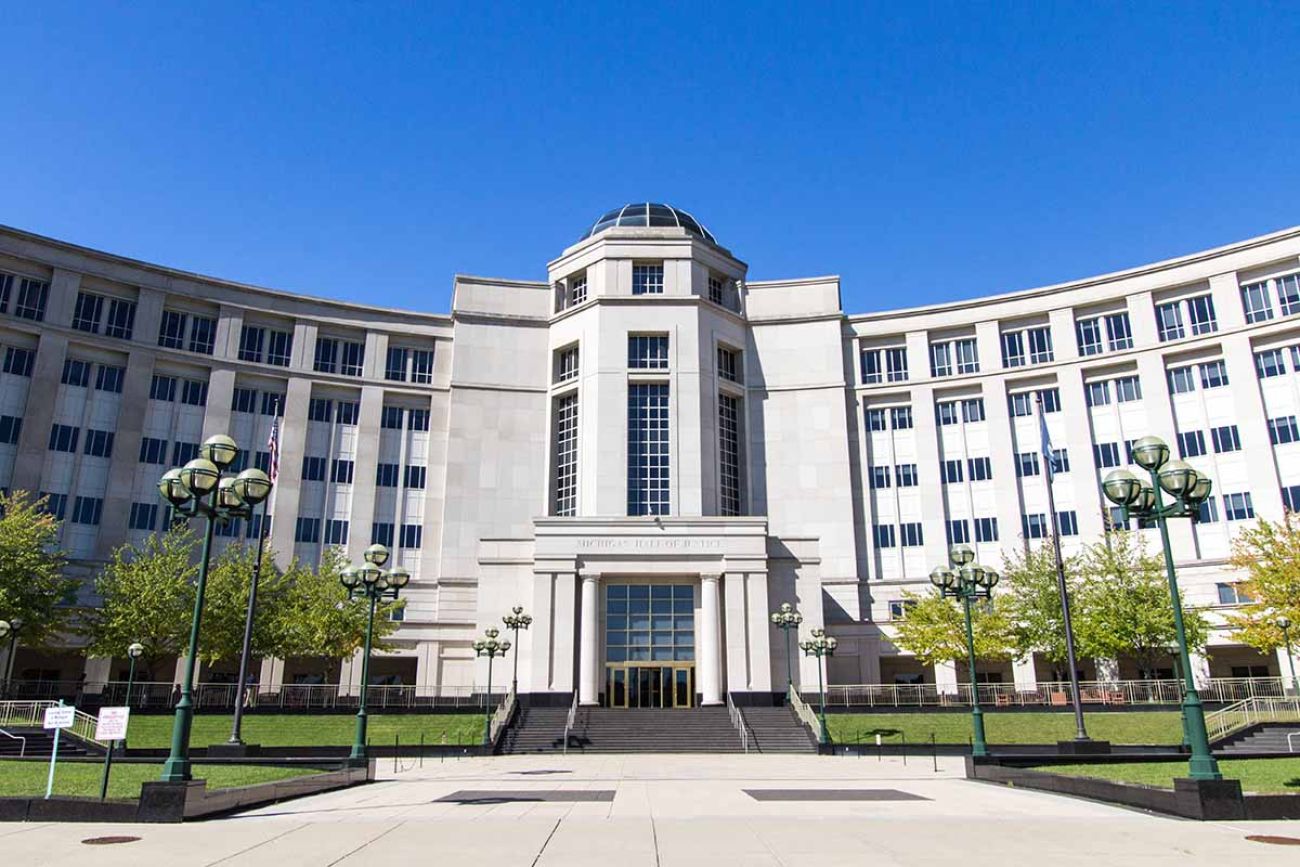Michigan $15 minimum wage hike won’t make 2024 ballot, Supreme Court rules

- A proposal to raise Michigan’s minimum wage to $15 an hour will not make the 2024 ballot following a state Supreme Court ruling.
- Board of State Canvassers deadlocked on approving the proposal last fall after organizers changed petitions.
- Supreme Court Justice Brian Zahra said it was ‘abundantly reasonable’ to reject petitions signed by 360,309 voters.
LANSING — An initiative to raise Michigan’s minimum wage to $15 an hour will not make the 2024 ballot after state Supreme Court justices on Friday declined to overrule a decision by the Board of State Canvassers.
Raise the Wage Michigan was accused of misleading voters after circulating a petition to increase the state’s minimum wage with slightly different language than canvassers had initially reviewed to approve a 100-word summary.
Republican canvassers in October voted against certifying an estimated 360,309 voter signatures collected by the group, and it is “not the role of this court to second guess … election disputes properly left to the bipartisan oversight of the Board,” Justice Brian Zahra wrote in a concurring opinion.
“It was abundantly reasonable for the Board to conclude that plaintiff failed to obtain pre-approval of an accurate statement of the petition submitted for final approval, which, rather than increasing the minimum wage for all employees, may have served to eliminate it for thousands,” wrote Zahra, one of three Republican nominees on the seven-member court.
Related:
- Michigan $15 minimum wage ballot petition blocked, setting up court fight
- Minimum wage increase set for February blocked by Michigan court
- Michigan restaurants: Raising minimum wage would doom us. Others dubious
Mark Brewer, the attorney representing Raise the Wage Michigan, declined to comment immediately on Friday, saying he’d yet to review the court’s decision.
But news of the decision was quickly met with relief from some in the hospitality industry, such as Michigan Restaurant and Lodging Association President Justin Winslow, who opposed the proposal because it would have also eliminated a lower “tipped wage” for some workers.
The industry is still operating “in the long shadow” of a separate lawsuit over legislative modifications to an earlier minimum wage proposal, but “this ruling will provide some solace to the nearly 500,000 industry employees and nearly 20,000 operators that they can return their focus to serving up Pure Michigan hospitality to millions of Michiganders every day," Winslow said in a statement.
The Michigan Supreme Court is still considering whether the 2018 Republican-led Legislature violated the state Constitution by adopting and then quickly weakening separate minimum wage and paid sick leave initiatives to keep them off the ballot that year. Justices could rule on that case soon.
The 2024 ballot proposal would have raised Michigan’s minimum wage to $15 by 2027, amending a state law that requires the current rate of $10.33 per hour to rise to $12 by 2030. It also would have phased out Michigan’s current $3.84 per hour tipped wage and required servers to make minimum wage by 2028.
Canvassers deadlocked over the group’s petition signatures last fall after Raise the Wage made changes to its petitions after seeking initial approval to circulate them.
Tony Daunt, one of the board’s two Republican canvassers who voted against certifying the petition, said Friday he was “confident at the time” and remains confident “that we made the right decision.”
“I think we’re vindicated in standing by our principle of ‘this was a material error and should not have received certification’,” Daunt said.
Canvassers had approved a summary based on petition language stating that any employer with more than one employee would have to pay minimum wage. However, the version circulated and signed by voters changed the definition of “employer” to mean that only companies with 21 or more employees would have to pay the state minimum wage.
The change could have potentially exempted 90% of small businesses in Michigan from the rules.
Saru Jayaraman, president of the One Fair Wage group that is backing the Michigan petition, issued a statement saying the group is "disappointed that Republicans on the Board of Canvassers have continued to thwart the will of Michigan voters."
"Michigan voters and Michigan workers deserve to have their voices heard, and we will continue pursuing all avenues to deliver the raise they’ve been asking for year after year," she added.
See what new members are saying about why they donated to Bridge Michigan:
- “In order for this information to be accurate and unbiased it must be underwritten by its readers, not by special interests.” - Larry S.
- “Not many other media sources report on the topics Bridge does.” - Susan B.
- “Your journalism is outstanding and rare these days.” - Mark S.
If you want to ensure the future of nonpartisan, nonprofit Michigan journalism, please become a member today. You, too, will be asked why you donated and maybe we'll feature your quote next time!




